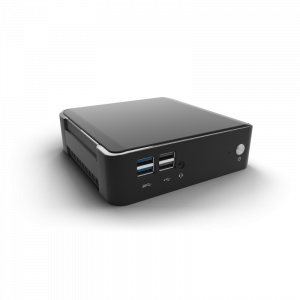Phone Kernel Development at Purism
Randy Siegel
Latest posts by Randy Siegel (see all)
- Freedom of Choice vs. Oppression of Big Tech - November 6, 2024
- The Case for Free/Libre and Open-Source Software: Enhancing Security and Privacy in the Digital Age - October 22, 2024
- RIP RSA AES: The Immediate Need of Quantum-Resistant Cryptography - October 22, 2024
Smartphone Kernels – The Heartbeat of the Operating System
At its core, the kernel is the fundamental layer of the operating system, acting as a bridge between the hardware and software. It manages system resources, handles memory allocation, and facilitates communication between applications and the hardware. Without a robust and efficient kernel, even the most advanced smartphone would struggle to perform basic tasks.
Security and Privacy: The Kernel’s Guardianship
In today’s digital age, security and privacy are paramount. The kernel is a critical line of defense against malicious attacks and vulnerabilities. It enforces security policies, manages permissions, and ensures that applications operate within their designated boundaries. At Purism, where our mission is to provide privacy-respecting devices, the kernel’s role in safeguarding user data cannot be overstated. A well-implemented kernel can mitigate risks and protect against exploits that could compromise sensitive information.
Performance and Efficiency: The Kernel’s Optimization
The kernel is also instrumental in optimizing the performance and efficiency of a smartphone. It manages multitasking, ensuring that applications run smoothly without draining the battery or overloading the processor. This delicate balance is crucial for delivering a user experience that is both responsive and energy-efficient. We have history showcasing how kernel optimizations significantly enhance the performance of devices, making them more reliable and user-friendly. The primary example is our earliest versions of the Librem 5 phone did not support suspend, which means the kernel keeps the CPU on even when not needed, wasting lots of power. Enabling suspend doubles the battery life, and we brought this support to all devices with a software update.
Innovation and Flexibility: The Kernel’s Foundation
Innovation in mobile technology often hinges on the flexibility of the kernel. It provides the foundation upon which new features and functionalities are built. A modular and customizable kernel allows developers to experiment and innovate, pushing the boundaries of what is possible in mobile computing.
Security Elements
Kernel-level security is a critical aspect of modern smartphone operating systems, ensuring that the core functions of the device are protected from malicious attacks and vulnerabilities. Here are some key elements of kernel-level security:
- Memory Protection: The kernel enforces memory protection to prevent unauthorized access to critical system memory. This includes techniques like address space layout randomization (ASLR) and data execution prevention (DEP) to make it harder for attackers to exploit vulnerabilities.
- Process Isolation: The kernel isolates processes from each other, ensuring that one compromised application cannot affect others. This is achieved through mechanisms like user-based permissions and secure inter-process communication (IPC).
- Access Control: The kernel manages access to hardware resources and sensitive data. Tools like filesystem permissions, access control lists (ACLs), and mandatory access control (MAC) policies can control access.
- Attack Surface Reduction: By minimizing the number of entry points and removing unnecessary code, the kernel reduces the potential attack surface. This includes disabling or restricting features that are not essential for the device’s operation.
- Regular Updates and Patching: Keeping the kernel up-to-date with the latest security patches is crucial. This helps to address newly discovered vulnerabilities and improve overall security.
Purism’s Approach to Kernel Development
Purism takes a unique approach to kernel development, focusing on privacy, security, and freedom. Here are some ways Purism differentiates itself:
- Upstream-First Development: Purism follows an upstream-first approach, meaning they contribute their changes directly to the upstream projects like the Linux kernel, GNOME, and Debian. This ensures that our improvements benefit the broader open-source community and reduces the maintenance burden of specialized forks.
- PureOS: Purism’s operating system, PureOS, is based on the Linux kernel and adheres to strict free software principles. It is endorsed by the Free Software Foundation and focuses on providing a secure and privacy-respecting environment.
- Custom Kernel Patches: Purism applies general kernel patches to enhance user experience and security. These patches are designed to improve performance, fix vulnerabilities, and ensure compatibility with their hardware.
- Collaborative Development: Purism actively collaborates with upstream projects and the open-source community. This collaborative approach helps them stay aligned with the latest developments and security practices in the open-source ecosystem.
By focusing on these principles, Purism aims to provide a secure, privacy-respecting, and user-friendly operating system for their devices – many of which feature Made in USA Electronics.
Purism Products and Availability Chart
| Model | Status | Lead Time | ||
|---|---|---|---|---|
 | Librem Key (Made in USA) | In Stock ($59+) | 10 business days | |
 | Liberty Phone (Made in USA Electronics) | In Stock ($1,999+) 4GB/128GB | 10 business days | |
 | Librem 5 | In Stock ($799+) 3GB/32GB | 10 business days | |
 | Librem 11 | In Stock ($999+) 8GB/1TB | 6+ weeks | |
 | Librem 14 | Out of stock | New Version in Development | |
 | Librem Mini | Out of stock | New Version in Development | |
 | Librem Server | In Stock ($2,999+) | 45 business days | |
 | Librem PQC Encryptor | Available Now, contact sales@puri.sm | 90 business days | |
 | Librem PQC Comms Server | Available Now, contact sales@puri.sm | 90 business days |
Recent Posts
Related Content
- A Quarter Century After Cyberselfish, Big Tech Proves Borsook Right
- PureOS Crimson Development Report: November 2025
- PureOS Crimson Development Report: October 2025
- Landfall: A Case Study in Commercial Spyware
- Librem PQC Encryptor: Future‑Proofing Against Both SS7 and Quantum


